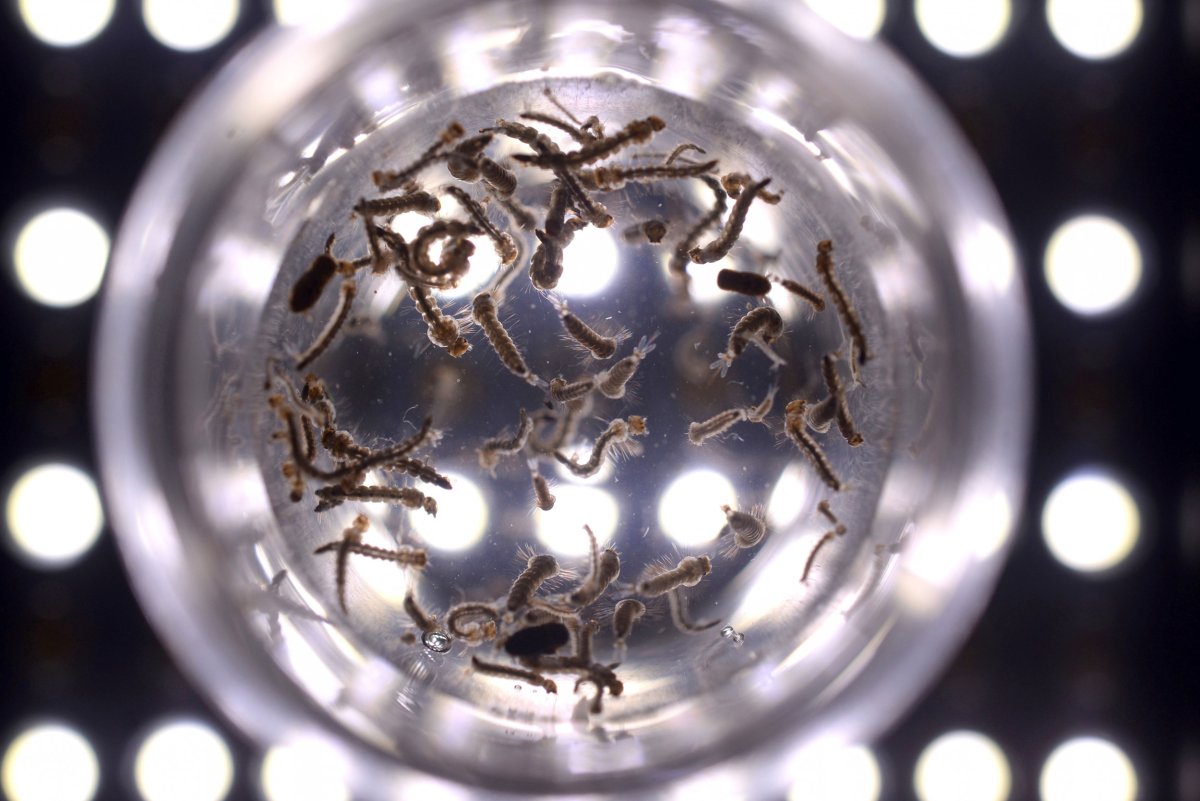Guillain-Barré syndrome (GBS) is a rare, autoimmune disease that sees the body's own immune system damages the nerves. It causes muscle weakness and sometimes paralysis, the U.S. Centers for Disease Control and Prevention (CDC) says.
On Thursday, the U.S. Food and Drug Administration (FDA) announced a new warning for Johnson & Johnson's Janssen COVID-19 vaccine after the CDC received reports that 100 people who were administered the vaccine developed GBS.
According to the FDA, the GBS subsection of the Emergency Use Authorization (EUA) Fact Sheet for vaccine providers was updated to include the following information: "Reports of adverse events following use of the Janssen COVID-19 Vaccine under emergency use authorization suggest an increased risk of Guillain-Barré syndrome during the 42 days following vaccination."
The U.S. National Institute of Neurological Disorders and Stroke (NINDS) of the U.S. National Institutes of Health explains the neurological disorder sees a person's immune system mistakenly "attack part of its peripheral nervous system—the network of nerves located outside of the brain and spinal cord."
The CDC says while most people fully recover from GBS, some experience permanent nerve damage or even die from disorder.
What Are the Symptoms of GBS?
Symptoms usually begin with weakness or tingling sensations in both legs, which in many cases extends to the arms and upper body, according to the CDC.
The NINDS says the severity of GBS can range from "a very mild case with brief weakness to nearly devastating paralysis, leaving the person unable to breathe independently."
These initial "unexplained sensations" in the feet and hands tend to disappear before "the major, longer-term symptoms" develop. Weakness on both sides of the body is the major symptom for which most patients seek medical attention, according to the NINDS.
GBS can also affect breathing muscles as well as the face, "reflecting more widespread nerve damage," the NINDS says.
Symptoms can progress in intensity over hours, days or weeks until certain muscles can no longer be used. "In these cases, the disorder is life-threatening—potentially interfering with breathing and, at times, with blood pressure or heart rate," the NINDS warns.
What Causes GBS?
The NINDS says the exact cause of GBS is unknown. It is not contagious or inherited and research has yet to reveal why it strikes some and not others.
"It is thought that, at least in some cases, this immune attack is initiated to fight an infection and that some chemicals on infecting bacteria and viruses resemble those on nerve cells, which, in turn, also become targets of attack," according to the NINDS.
Most cases of GBS start days or weeks after a respiratory or gastrointestinal viral infection, while "occasionally surgery will trigger the syndrome," the NINDS says.
According to the CDC, around two-thirds of GBS patients had diarrhea or a respiratory illness several weeks before having symptoms of GBS.
What Are Risk Factors for GBS?
According to the CDC, GBS is rare and affects only about one in 100,000 people. In the U.S., around 3,000 to 6,000 people develop GBS each year.
While anyone can develop GBS, the CDC notes in the U.S. it is more common in men and adults older than 50.
The federal body says among the most common risk factors for GBS is Campylobacter jejuni infection, which causes diarrhea.
According to the CDC, about 40 percent of U.S. GBS cases are believed to be triggered by Campylobacter infection, while around one in every 1,000 reported Campylobacter illnesses leads to GBS.
Individuals can also develop GBS after certain infections, such as the flu, cytomegalovirus and Epstein Barr virus. "Very rarely, people have developed GBS in the days or weeks after receiving certain vaccines," the CDC says.
The NINDS adds: "In rare cases vaccinations may increase the risk of GBS. Recently, some countries worldwide reported an increased incidence of GBS following infection with the Zika virus."
Can GBS Be Treated?
The NINDS says there is no known cure for GBS. But there are therapies available that can help reduce its severity, cut down recovery time as well as treat the complications of the illness.
The CDC explains: "Common treatments include plasma exchange (a procedure that removes and replaces the liquid part of the blood) and high-dose immunoglobulin therapy (an infusion of antibodies)."
According to the NINDS, around 70 percent of GBS patients eventually fully recover from the disease.
The NINDS notes "even those individuals with respiratory failure usually survive" following intensive care and the treatment of "infection, autonomic dysfunction and other medical complications."
See the websites of the CDC and the NINDS for more information.

Uncommon Knowledge
Newsweek is committed to challenging conventional wisdom and finding connections in the search for common ground.
Newsweek is committed to challenging conventional wisdom and finding connections in the search for common ground.
About the writer
Soo Kim is a Newsweek reporter based in London, U.K. She covers various lifestyle stories, specializing in travel and health.
Soo ... Read more
To read how Newsweek uses AI as a newsroom tool, Click here.








